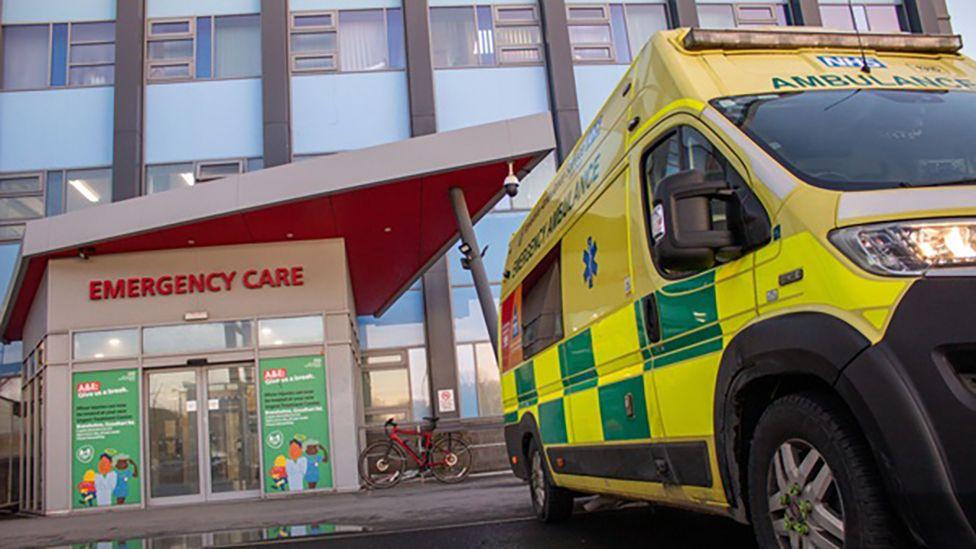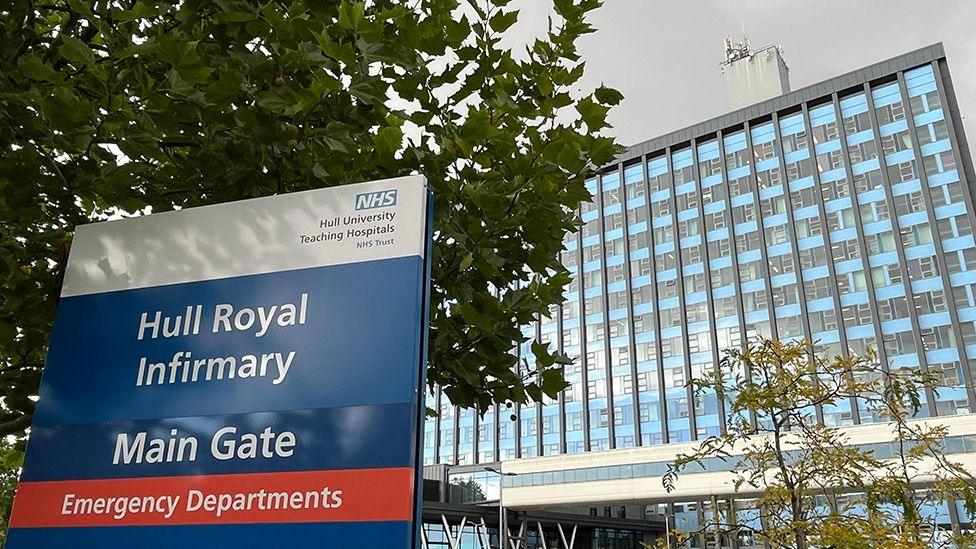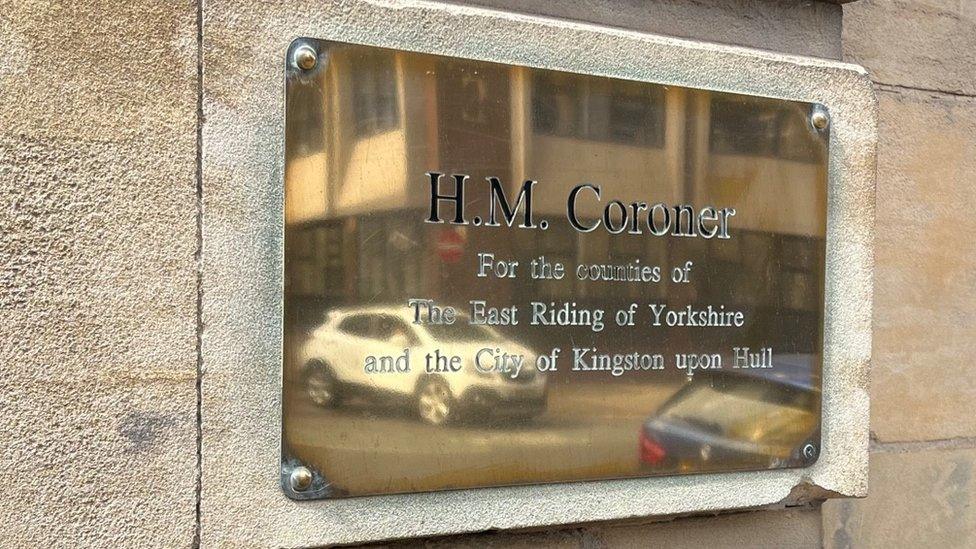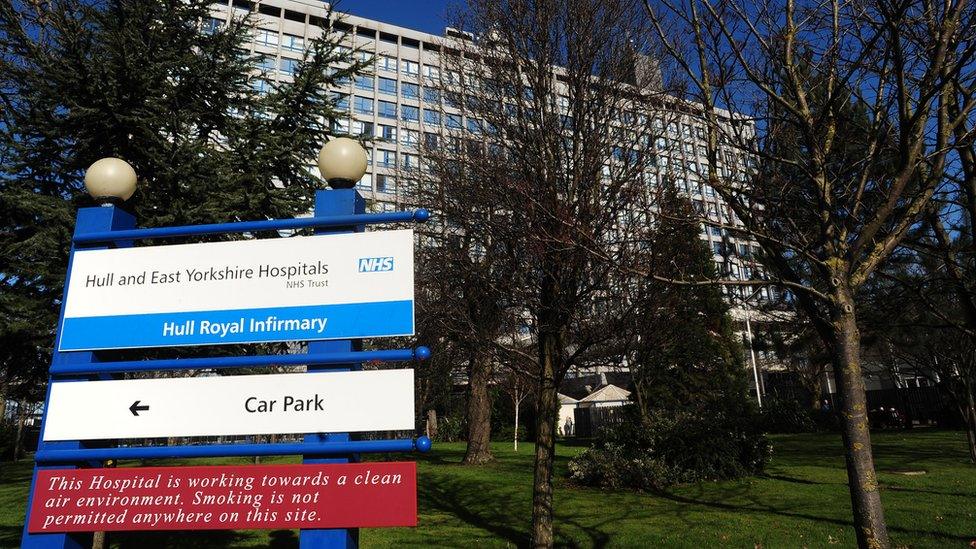Coroner's concern over lack of end-of-life beds

Kathleen Ward died in Hull Royal Infirmary after being admitted through the emergency department
- Published
A coroner has raised concerns over the hospital care of a terminally ill woman.
Lack of beds at the Queen's Centre in Castle Hill Hospital meant that Kathleen Ward died in Hull Royal Infirmary "in a location that did not have the specialism, the medication, or the privacy to care for her in her final hours", coroner Lorraine Harris wrote in a Prevention of Future Deaths report.
The coroner said that no expansion in the number of beds at Castle Hill "meant that I could have no reassurance that the circumstances of Mrs Ward's death would not be repeated".
Hull University Teaching Hospitals NHS Trust apologised that Mrs Ward's "end-of-life experience in the emergency department was not ideal".
An inquest in Hull found that Mrs Ward, 76, died of pneumonia and lung cancer caused by exposure to asbestos.
"When gravely ill, on 19th February 2025 there were no available beds at the Queen's Centre which would be appropriately equipped to deal with patients at end of life," the coroner wrote.
"Mrs Ward therefore had to be taken to the emergency department at Hull Royal Infirmary.
"For 21 hours there were no suitable beds available. It is expected that a suitable bed should be found within four hours."
Ms Harris added: "At a time that it was evident to the family that Mrs Ward was approaching end of life, she was moved unnecessarily from a quiet room to a six-bay location, she died very shortly afterwards.
"I can only echo the words of a nurse, it was not acceptable or dignified."

The coroner said that there were no palliative care beds available at the Queen's Centre
She added that the emergency department was "not set up to provide those with life limiting illnesses will not be treated appropriately to alleviate symptoms before end-of-life to prolong and give pain free/limiting treatment".
The coroner also raised concerns that using the emergency department for end-of-life care "means that those requiring life saving emergency treatment may be delayed in receiving appropriate care".
In a statement, the trust claimed the coroner had "identified no deficiencies in Mrs Ward's clinical care".
'Deep regret'
It added the Prevention of Future Deaths report "was not to criticise the trust's clinical practice but to draw wider attention to bed capacity pressures within oncology and palliative services; in this instance, all parts of the hospital were experiencing significant demand for beds and the Queen's Centre was already full."
"We accept that her end-of-life experience in the emergency department was not ideal and we would like to apologise to her loved ones for this".
"It is with deep regret that we were unable to find a suitable palliative care bed for Mrs Ward at the time of her hospital admission or to provide her with the most appropriate end-of-life care."
Listen to highlights from Hull and East Yorkshire on BBC Sounds, watch the latest episode of Look North or tell us about a story you think we should be covering here, external.
Download the BBC News app from the App Store, external for iPhone and iPad or Google Play, external for Android devices
Related topics
Related internet links
More related stories
- Published31 October

- Published20 May 2024

- Published21 July 2023
